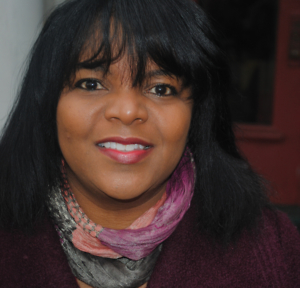Dreams of Happiness
Two generations struggle for love and success in Stephanie Powell Watts’s No One Is Coming to Save Us
Restless dissatisfaction is the quintessential American state of mind. As a nation, we equate external success with happiness, which means we’re effectively programmed for unhappiness, forever striving and longing, trying to find the power, the pleasure, or the love object that will justify our lives and tell us who we are. This cultural curse is at the heart of The Great Gatsby and the source of our perennial fascination with that novel. In No One Is Coming to Save Us, Stephanie Powell Watts takes up Gatsby’s themes—wealth, social position, the search for love—and explores them through a twenty-first-century African-American family in the Piedmont region of North Carolina. She answers Fitzgerald with a vision that broadens and enriches his depiction of the American Dream and its human cost.

Pinewood, North Carolina, is a once-thriving furniture-industry town where the “jobs that everybody knew as the last resort or the safety net are the jobs nobody can get anymore.” It’s the sort of place where everyone seems to share in a general sense of decline and unmet hopes, and that’s certainly true of Sylvia, a woman entering old age without much joy or contentment. She’s long fallen out of love with her husband, Don, who is determined to cling to her even while he carries on an affair with a shockingly young woman. She’s troubled by the absence of her son, Devon, whose fate she apparently knows but won’t acknowledge, and her other child, a married daughter named Ava, seems to baffle her.
The most gratifying relationship she has is an ongoing telephone friendship with a young man in prison, Marcus, who one day dialed her number at random. He tells her not to visit him, but she fantasizes about surprising him “with a pie and a couple of magazines,” convinced he’ll be happy to see her once she’s there — and she is hungry to be seen. She secretly imagines herself “disappearing from view, shouting for help before the last of her vanished into thin air.”
 Ava’s unhappiness is more focused than her mother’s. A professional woman in her late thirties, she’s desperate to have a baby. As “Ava2WW,” she spends a lot of time on “Mommies2B.com,” posting details of her ovulation and—to her surprise—offering prayers of support to fellow infertile women. Meanwhile, her husband, Henry, is waiting for the ax to fall on his factory job and, like his father-in-law, trying to juggle the emotional demands of both his wife and a mistress.
Ava’s unhappiness is more focused than her mother’s. A professional woman in her late thirties, she’s desperate to have a baby. As “Ava2WW,” she spends a lot of time on “Mommies2B.com,” posting details of her ovulation and—to her surprise—offering prayers of support to fellow infertile women. Meanwhile, her husband, Henry, is waiting for the ax to fall on his factory job and, like his father-in-law, trying to juggle the emotional demands of both his wife and a mistress.
Into this well of discontent comes JJ Ferguson, one of the town’s more unfortunate sons who disappeared for years and has now returned, mysteriously rich. He was once Henry’s rival for Ava’s love, and Sylvia regards him as a possible surrogate for the absent Devon. JJ brings his own agenda of longing, primarily his undying desire for Ava, and his presence forces everyone to confront the disappointments, denials, and illusions they’ve been desperately trying not to see.
All Watts’s characters dream in one way or another of success and security, but their dreams remain just that, not even quite rising to the level of illusion. The home Sylvia and Don bought and passed on to Ava is not the cozy, idyllic refuge Sylvia once hoped for but an ordinary, messy, imperfect family domicile. JJ’s mansion, which sits high above the town and inspires much gossip, is really more a construction site than a finished home. Aspiration seems largely futile, and nostalgia offers no comfort, either. The town itself may be going to seed, but no one has any romantic illusions about a grander past. Sylvia and Don remember all too well the days when they were shut out of the better neighborhoods and couldn’t sit down to eat at Simmy’s, Pinewood’s beloved diner.
If the novel takes a dim view of redemption through wealth, its case for love is more complicated. Here, love is not so much elusive or illusory as confounding. For all their confusion and self-absorption, these characters have a deep capacity for love, and much of the story is concerned with how they uncover that capacity or come to terms with the necessity of redirecting it. Most threads of the novel resolve toward acceptance and reconciliation. In that sense, No One Is Coming to Save Us is a far more optimistic tale than the one that inspired it.

Maria Browning is a fifth-generation Tennessean who grew up in Erin and Nashville. A graduate of Mount Holyoke College, she has attended the Clothesline School of Writing in Chicago, the Moss Workshop with Richard Bausch at the University of Memphis, and the Sewanee Writers’ Conference. She lives in White Bluff.


